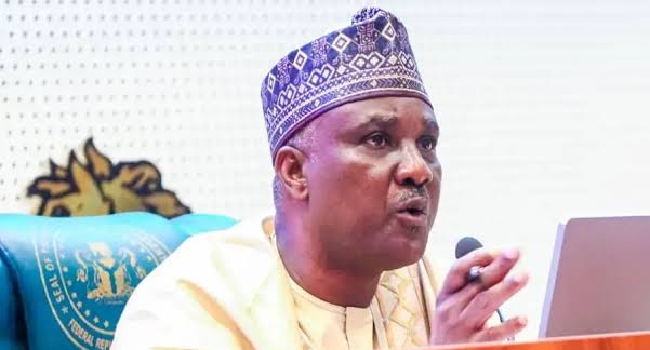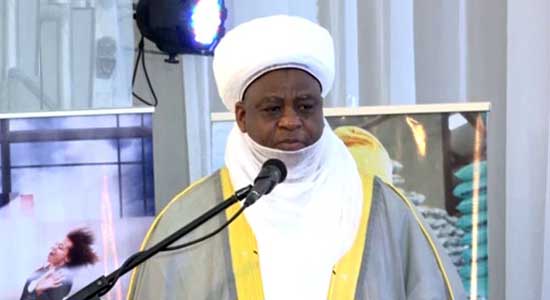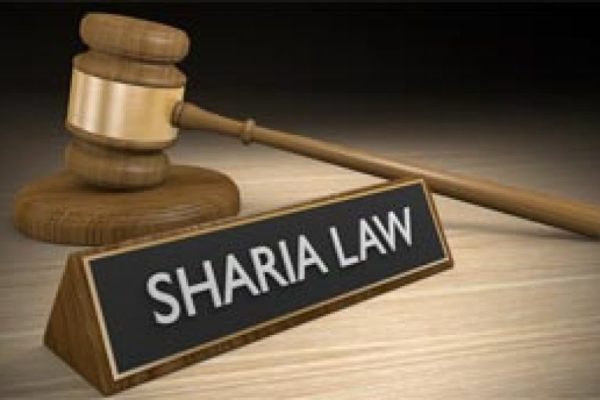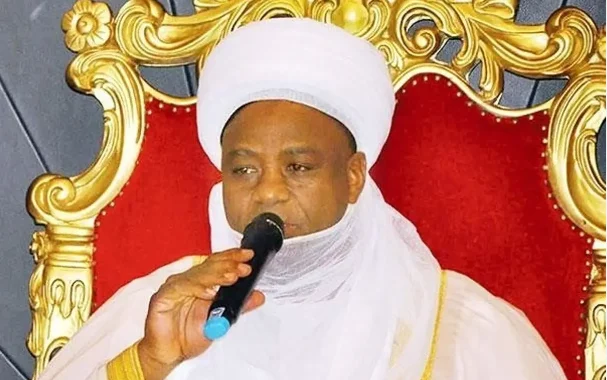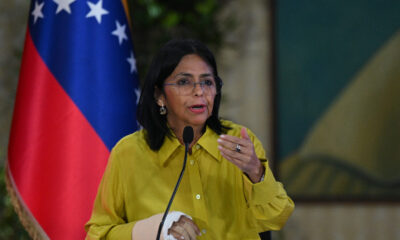The Speaker of the House of Representatives, Tajudeen Abbas, the Deputy Speaker, Benjamin Kalu and former Kano State Governor, Rabiu Kwankwaso, were some of the dignitaries at Thursday’s valedictory in honour of former Speaker, Agunwa Anaekwe.
Anaekwe, who was the Speaker in the botched Third Republic, died in July 2025 at the age of 69.
He was Speaker on December 5, 1992, until November 17, 1993, when the late military dictator, Gen Sani Abacha, sacked the Ernest Shonekan-led Interim National Government.
As a sign of respect for the departed politician, the casket bearing his remains was brought to the main lobby of the National Assembly, where lawmakers from both chambers took turns to pay their last respect.
Leading the flood of tribute at a session attended by Anaekwe’s immediate family members, Abbas described the valedictory session as an opportunity for lawmakers to assess the nation’s leadership trajectory, identify gaps and take actions to right the wrongs of the past.
He said, “The valedictory session is not merely to offer ceremonial words. It offers us the opportunity both as an institution and as individuals to assess the substance of leadership, the weight of duty, and the legacy left behind. Rt Hon Anaekwe exemplified a standard of parliamentary conduct that combined discipline, fairness, and clarity of purpose.
“Elected during the Third Republic at a time when Nigeria stood at a complex intersection of political transition and democratic aspiration, he assumed the speakership in 1992 and guided this House with composure and clarity of purpose. He recognised that the strength of a legislature lies not in power for its own sake, but in the responsible exercise of authority.
“He approached the speakership not as a platform for personal elevation, but as a constitutional trust. Under his leadership, the House maintained coherence in the face of political uncertainty.
“He upheld the sanctity of this House and demonstrated that even in turbulent periods, legislative order can be preserved through restraint and conviction.”
Highlighting the esteem the 10th House held the ex-Speaker, Abbas stated that “By allowing his remains to lie in state within this institution he once led, the National Assembly affirms the enduring significance of his contribution. This honour is not symbolic alone. It confirms that our history acknowledges those who strengthened the legislature through integrity rather than ambition.
“Rt Hon Anaekwe did not merely occupy the office of Speaker. He accepted the challenge and the enormous responsibility entrusted to him. He discharged his duty with humility and a deep sense of service. He demonstrated that leadership can be disciplined, thoughtful, and principled.”
On his part, the Deputy Speaker, Benjamin Kalu, who spoke on behalf of the leadership of the 10th House, lauded Anaekwe for his democratic credentials and leadership acumen.
“At just 36, he bore the weight of a young democracy on his shoulders. He understood that politics is not an occupation but a call to serve the public good. His fidelity to democratic ideals earned him the respect of colleagues and country alike.
“While institutions endure, it is men of character who give them life, meaning, and legitimacy. We honour him best by ensuring that this House continues to act with discipline, unity, and devotion to national interest,” Kalu said.
Also speaking, a member of the National Burial Committee, Senator Osita Izunaso, recalled Anekwe’s role in defending democracy during one of Nigeria’s most difficult political periods.
“He fought and defended democracy when we had a near-dictatorship — the military at the executive level and the politicians at the National Assembly. When the military struck on November 17, 1993, he was determined to reconvene the House of Representatives. That determination led to the instant dissolution of the National Assembly.
“He fought for June 12 and defended that mandate. He stood for democracy even when it was risky to do so,” he added.
In his contribution, the lawmaker representing Anambra Central Senatorial District, Victor Umeh, described the deceased as a man who had zero controversy throughout his sojourn in politics.
“He became Speaker at the age of 36, a gentleman in politics. He was never associated with controversy. He built bridges across regions and pursued nation-building with sincerity and moderation. Our people revere him as a man of peace and principle.
“He managed the party with humility and built a solid political foundation that produced future leaders. Even when political godfathers tried to derail democracy in our state, Agunwa stood firm for the people,” he said.
Representative of the Senate President, Senator Muhammed Monguno, commended Anaekwe for standing “Firmly against dictatorial tendencies,” stressing that his belief in democracy was without compromise.
“The late Honourable Agunwa Anakwe, as Speaker, not only preached the gospel of democracy but championed it by leading the House to reject an obnoxious and draconian decree that sought to cripple legislative independence,” he added.
The Borno lawmaker narrated how the late Anakwe sponsored a delegation to the 1993 Commonwealth Conference in Cyprus to challenge the legitimacy of Chief Ernest Shonekan’s interim government.
“We addressed a world press conference declaring that Chief Ernest Shonekan was an imposition on Nigerians and that the National Assembly held the legitimate mandate of the people,” Monguno stated.
Speaking on behalf of former Speakers, Yakubu Dogara described Anaekwe as “A dove with the heart of a lion,” noting that “He led the House in an era when political life was short, poor, nasty, and brutal. Yet, he managed to stand firm with wisdom, calmness, and courage.”
Dogara said the deceased would be remembered “Not for what he kept, but for what he gave: his service, values and examples.”
In his brief comment, Kwankwaso, who served as Deputy Speaker in the Third Republic, drew a bout of laughter from lawmakers present at the valedictory session when he said that “There is no doubt that Anaekwe would have today joined the New Nigeria Peoples Party to do the right thing for the nation.”
Meanwhile, the Deputy Speaker has been appointed to lead a strong delegation of the 10th House to the burial of Anaekwe in Adazi, Anaocha Local Government Area of Anambra State on Friday.
punch.ng
FOLLOW US ON:

